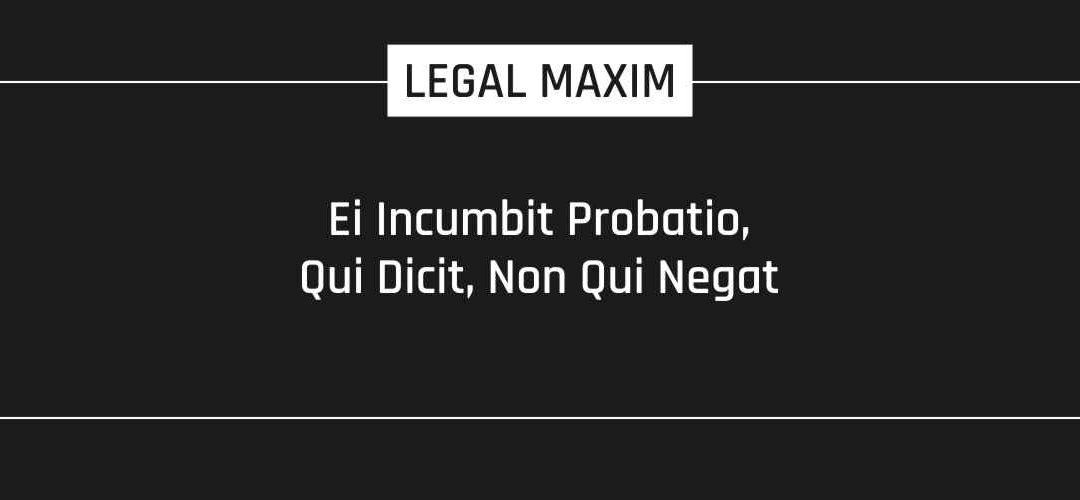Literal Meaning
The burden of proof lies upon the person who affirms but not who denies.
Origin
Latin
Explanation
The principle as stated means that the onus to prove the guilt of the accused lies upon the person who affirms it i.e. it is the prosecution’s duty to prove the guilt beyond a reasonable doubt rather than the accused. According to this principle, there is a presumption of innocence for every individual unless he or she is proven guilty. This rule prevents the harassment, embarrassment, and punishment of the ‘innocent responsible people’ who might be wrongfully or maliciously framed. In general, the principle states that a person is considered to be innocent unless proven guilty. This notion is considered to be one of the primitive notions which are remarkably widespread in the legal system of every country all over the world. Under this presumption of innocence, the burden of proof lies upon the prosecution to collect all the material evidence and present it and prove the guilt of the accused beyond a reasonable doubt. This instant rule not only provides protection against the malicious detention or framing but also asserts rights to the accused against false accusations and safeguard the human rights of every individual.
As stated that the rule of presumption of innocence prevails unless the accused is proven guilty and thus the onus to prove the guilt of the accused is upon the affirming party and the affirming is ordered by the court to collect and present compelling evidence against the accused and prove the guilt beyond a reasonable doubt.
Illustration
X was accused of robbing a jewelry store at gunpoint. X was arrested, charged, and brought to trial. It is the duty of the prosecution to provide the court with all the compelling as well as material evidence to prove all the elements of the crime of robbery. Prosecution produces all the evidence to prove the guilt of the accused. Thus, it was held that the prosecution has the burden to prove the guilt beyond reasonable doubt and the accused till that guilt is proven and that he is assumed to be innocent.
Case laws
In the case of Dr. Om Prakash Rawal vs. Mr. Justice Amrit Lal Bahri, it was stated that the rule of evidence as under section 101 of the Indian Evidence Act is based on the well-known maxim Ei incumbit probatio, qui dicit, non qui negat which means that the burden of proof lies on the party who asserts, not on him who denies it.
In another case of M/S G.D Engineering Works vs. Arvind Kumar, it was held that in industrial claims, the procedure is guided by the general principles of the law of evidence that the person who asserts must prove. In the instant case, it was concluded by the court that burden of proving the facts rests upon the asserting party and not upon the denying party as per the legal principle of law i.e. Ei incumbit probatio, qui dicit, non qui negat.
This maxim has been written and submitted by Ms. Arushi Lamba during her course of internship at B&B Associates LLP. Ms. Arushi is a 4th-year law student of Panjab University, Chandigarh.
